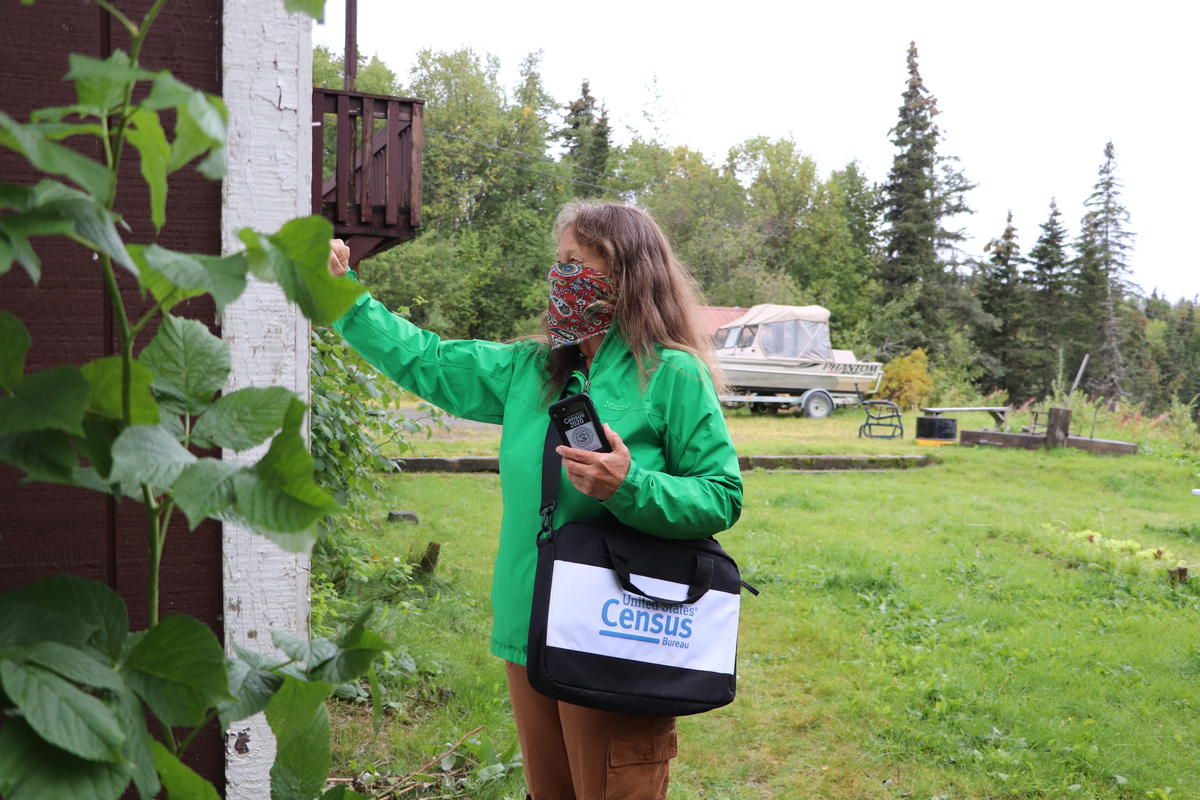
During a recent virtual panel discussion on Facebook Live, Alaska census advocates talked about getting people to participate in the count.
“People aren’t going to answer the census at this point because they saw a fancy add or because they got a cup that says ‘2020 Census,’” said James Christy, the assistant director for field operations at the U.S. Census Bureau. “They’re going to answer it because somebody that they trust said that it’s OK to do this, and that it’s important to do this.”
In early August, the Census Bureau announced that counting would end on September 30 — a month sooner than originally planned. Census officials say the bureau needs to complete data collection and statutory counts by their December 31 deadline.
Gloria O’Neill, the president and CEO of Cook Inlet Tribal Council, says the federal government should extend the deadline through the end of October.
“I think about how there are many Alaskans and Tribal people that, during this time, they are trying to fill their freezers,” she said. “And that’s their first focus right now…to ensure that their families have enough to eat through the winter, right? And to engage in subsistence activities.”
But many census committees in the state are not relying on Congress to push back that deadline.
Alaska has the lowest response rate of any state in the country. Only 30% of Dillingham residents have responded to the census so far. And the deadline change left local census takers scrambling to get everyone counted.
Dillingham’s Complete Count Committee is spearheading census outreach in the city. Co-chair Marilyn Rosene says the shortened timeline makes it difficult to get a full count from communities like Dillingham, where the summer can be the busiest time of year.
“When you add our summer activities, and hunting is going on now until the middle of September, we’ve got a lot to do before the end of September,” she said. “It is earlier than it originally was, which is a double hurdle for us I think.”
To help close that gap in Dillingham, trained census workers will call households and visit homes around the community.
“Basically, they each have a little computer that tells them every morning where they need to go, which addresses they need to knock on the door. Everything is safe and socially distant. Nobody goes inside. And it’s for verification of information,” Rosene explained.
The census happens every 10 years and helps the federal government determine funding for community services.
In Dillingham, those services include the hospital, the harbor, Tribal programs, HeadStart, the SAFE women’s shelter, the school district, the library and public safety.
According to the Alaska Federation of Natives, every Native person that goes uncounted means that $3,500 of funding could be lost annually. For a Native family of four that isn’t counted, the loss in AFN says that number is $14,000 dollars.
“The more complete count we get for Dillingham residents, the benefit for our whole community as a whole is going to be real impactful for the next 10 years,” said DeeDee Bennis, the Complete Count Committee’s other co-chair. “Can’t tell you enough how important it is, and we only have this small window of time before census is going to be completed and done, and that’s September 30.”
People can still complete the census online, over the phone, or by mail. You do not need your census code to fill out the actual form.
